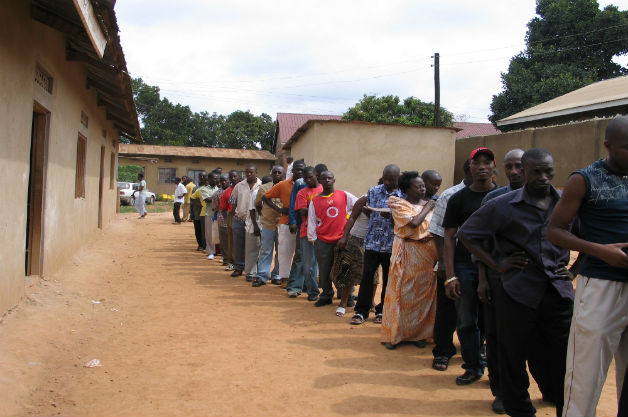"In Kampala, the long wait for the bus is finally over"
April 2 Commuters in congested Kampala, the capital of Uganda, are now enjoying cheaper daily transport fares. Yet as Commonwealth Correspondent Steven Nsubuga, 27, reports, not everyone is delighted with the changes.
Commuters in congested Kampala, the capital of Uganda, are now enjoying cheaper daily transport fares. Yet as Commonwealth Correspondent Steven Nsubuga, 27, reports, not everyone is delighted with the changes.
Having been to a couple of African countries – and for good measure one country in Europe – I can say with as much assurance and certainty as those international forays can afford, that Uganda has the most chaotic transport system in the world.
The sense of disorderliness is enough to drive a lesser mortal mad when you consider the 16 seater commuter vans commonly referred to as taxis, not to mention the motorcycles called ‘boda boda’, and of course the rest of the private vehicles owned by the general populace. Any visitor to Uganda can readily attest to the bedlam that is an almost permanent fixture on our roads.
So what has all that got to do with buses? Well, it all started when the Kampala Capital City Authority, referred to hereafter as KCCA, decreed that the contract previously awarded to Uganda Taxi Operators and Drivers Association (UTODA) to run the public transport system had expired.
KCCA then took over running the system and announced that it would bring in buses that would eventually phase out or significantly reduce the number of commuter vans in the city and its environs. This was seen as a long term measure especially since some modalities regarding the buses had not yet been worked out, despite the fact that several of the vehicles had already been procured.
In the interim, the taxis were allowed to continue operating, but instead of having them pay daily charges an equivalent monthly levy was introduced. This did not please the taxi operators who, after threatening the KCCA to no avail, decided to go on strike, leaving many commuters stranded with no way to get to work or school.
 The taxi operators’ joy was short-lived when KCCA decided to deploy the buses to rescue the situation, even though the buses did not yet have registration numbers. Commuters were overjoyed, especially since the bus fares were between 10 and 20 per cent cheaper than taxi fares.
The taxi operators’ joy was short-lived when KCCA decided to deploy the buses to rescue the situation, even though the buses did not yet have registration numbers. Commuters were overjoyed, especially since the bus fares were between 10 and 20 per cent cheaper than taxi fares.
You do not need genius intellect to predict what happened. Before you could say ‘strike’ the taxis were back on the road, having paid the monthly levy to KCC, with reduced fares.
There is not time here to pick out all the lessons learned from the whole saga, but suffice it to say that we, the commuters, are pleased as punch.
Soon, we hope, there will be fewer taxis and hence less traffic on our narrow congested roads.
…………………………………………………………………………………………………………………
About me:
“I am a 27-year-old software developer from Uganda. When I am not writing code, I am either reading my bible or playing Scrabble, football or badminton (I am a classic single-tasker, so I only one activity at a time).
“Sometimes you may also find me pondering who was the greater detective – Hercule Poirot or Sherlock Holmes.”
…………………………………………………………………………………………………………………
Opinions expressed in this article are those of the author and do not necessarily represent the views of the Commonwealth Youth Programme. Articles are published in a spirit of dialogue, respect and understanding. If you disagree, why not submit a response?
To learn more about becoming a Commonwealth Correspondent please visit: http://www.yourcommonwealth.org/submit-articles/commonwealthcorrespondents/
…………………………………………………………………………………………………………………




